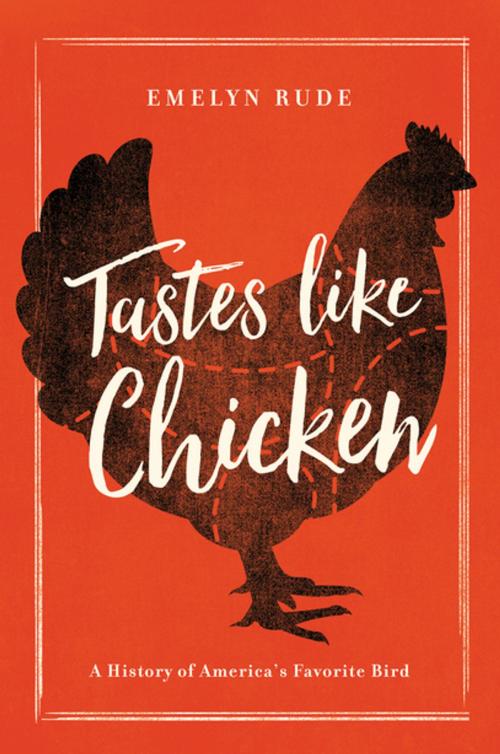| Author: | Emelyn Rude | ISBN: | 9781681771984 |
| Publisher: | Pegasus Books | Publication: | August 2, 2016 |
| Imprint: | Pegasus Books | Language: | English |
| Author: | Emelyn Rude |
| ISBN: | 9781681771984 |
| Publisher: | Pegasus Books |
| Publication: | August 2, 2016 |
| Imprint: | Pegasus Books |
| Language: | English |
From the domestication of the bird nearly ten thousand years ago to its current status as our go-to meat, the history of this seemingly commonplace bird is anything but ordinary.
How did chicken achieve the culinary ubiquity it enjoys today? It’s hard to imagine, but there was a point in history, not terribly long ago, that individual people each consumed less than ten pounds of chicken per year. Today, those numbers are strikingly different: we consumer nearly twenty-five times as much chicken as our great-grandparents did.
Collectively, Americans devour 73.1 million pounds of chicken in a day, close to 8.6 billion birds per year. How did chicken rise from near-invisibility to being in seemingly "every pot," as per Herbert Hoover's famous promise?
Emelyn Rude explores this fascinating phenomenon in Tastes Like Chicken. With meticulous research, Rude details the ascendancy of chicken from its humble origins to its centrality on grocery store shelves and in restaurants and kitchens. Along the way, she reveals startling key points in its history, such as the moment it was first stuffed and roasted by the Romans, how the ancients’ obsession with cockfighting helped the animal reach Western Europe, and how slavery contributed to the ubiquity of fried chicken today.
In the spirit of Mark Kurlansky’s Cod and Bee Wilson's Consider the Fork, Tastes Like Chicken is a fascinating, clever, and surprising discourse on one of America’s favorite foods.
From the domestication of the bird nearly ten thousand years ago to its current status as our go-to meat, the history of this seemingly commonplace bird is anything but ordinary.
How did chicken achieve the culinary ubiquity it enjoys today? It’s hard to imagine, but there was a point in history, not terribly long ago, that individual people each consumed less than ten pounds of chicken per year. Today, those numbers are strikingly different: we consumer nearly twenty-five times as much chicken as our great-grandparents did.
Collectively, Americans devour 73.1 million pounds of chicken in a day, close to 8.6 billion birds per year. How did chicken rise from near-invisibility to being in seemingly "every pot," as per Herbert Hoover's famous promise?
Emelyn Rude explores this fascinating phenomenon in Tastes Like Chicken. With meticulous research, Rude details the ascendancy of chicken from its humble origins to its centrality on grocery store shelves and in restaurants and kitchens. Along the way, she reveals startling key points in its history, such as the moment it was first stuffed and roasted by the Romans, how the ancients’ obsession with cockfighting helped the animal reach Western Europe, and how slavery contributed to the ubiquity of fried chicken today.
In the spirit of Mark Kurlansky’s Cod and Bee Wilson's Consider the Fork, Tastes Like Chicken is a fascinating, clever, and surprising discourse on one of America’s favorite foods.















